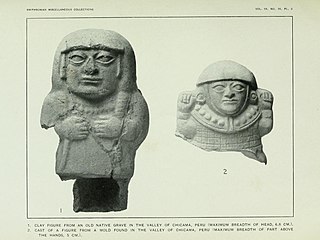A Quote by Ralph Waldo Emerson
Of Nature itself upon the soul; the sunrise, the haze of autumn, the winter starlight seem interlocutors; the prevailing sense is that of an exposition in poetry; a high discourse, the voice of the speaker seems to breathe as much from the landscape as from his own breast; it is Nature communing with the seer.
Related Quotes
The soul of man, left to its own natural level, is a potentially lucid crystal left in darkness. It is perfect in its own nature, but it lacks something that it can only receive from outside and above itself. But when the light shines in it, it becomes in a manner transformed into light and seems to lose its nature in the splendor of a higher nature, the nature of the light that is in it.
To anticipate, not the sunrise and the dawn merely, but, if possible, Nature herself! How many mornings, summer and winter, before yet any neighbor was stirring about his business, have I been about mine...So many autumn, ay, and winter days, spent outside the town, trying to hear what was in the wind, to hear and carry it express! I well-nigh sunk all my capital in it, and lost my own breath into the bargain, running in the face of it.
Four Seasons fill the measure of the year; There are four seasons in the mind of man: He has his lusty Spring, when fancy clear Takes in all beauty with an easy span: He has his Summer, when luxuriously Spring's honey'd cud of youthful thought he loves To ruminate, and by such dreaming high Is nearest unto heaven: quiet coves His soul has in its Autumn, when his wings He furleth close; contented so to look On mists in idleness—to let fair things Pass by unheeded as a threshold brook. He has his Winter too of pale misfeature, Or else he would forego his mortal nature.
Sometimes he caught himself listening to the sound of his own voice. He thought that in her eyes he would ascent to an angelical stature; and, as he attached the fervent nature of his companion more and more closely to him, he heard the strange impersonal voice which he recognised as his own, insisting on the soul's incurable lonliness. We cannot give ourselves, it said: we are our own.
What particular experiences will nourish your soul? No one can prescribe that for you; it is something only you can know and experience. What is satisfying for one person may be just the opposite for someone else. Being out in nature, by the seashore, or on a mountaintop works for me. Communing with nature brings me into soul time. But for others, being out in nature is something to be tolerated, or even an ordeal, or just what you do if you're a member of a family that goes camping.
Zen purposes to discipline the mind itself, to make it its own master, through an insight into its proper nature. This getting into the real nature of one's own mind or soul is the fundamental object of Zen Buddhism. Zen, therefore, is more than meditation and Dhyana in its ordinary sense. The discipline of Zen consists in opening the mental eye in order to look into the very reason of existence.
Communing with God is communing with our own hearts, our own best selves, not with something foreign and accidental. Saints and devotees have gone into the wilderness to find God; of course they took God with them, and the silence and detachment enabled them to hear the still, small voice of their own souls, as one hears the ticking of his own watch in the stillness of the night.
Nature is man's inorganic body -- that is to say, nature insofar as it is not the human body. Man lives from nature -- i.e., nature is his body -- and he must maintain a continuing dialogue with it is he is not to die. To say that man's physical and mental life is linked to nature simply means that nature is linked to itself, for man is a part of nature.
Nature is seen by humans through a screen of beliefs, knowledge, and purposes, and it is in terms of their images of nature, rather than of the actual structure of nature, that they act. Yet, it is upon nature itself that they do act, and it is nature itself that acts upon them, nurturing or destroying them.









































